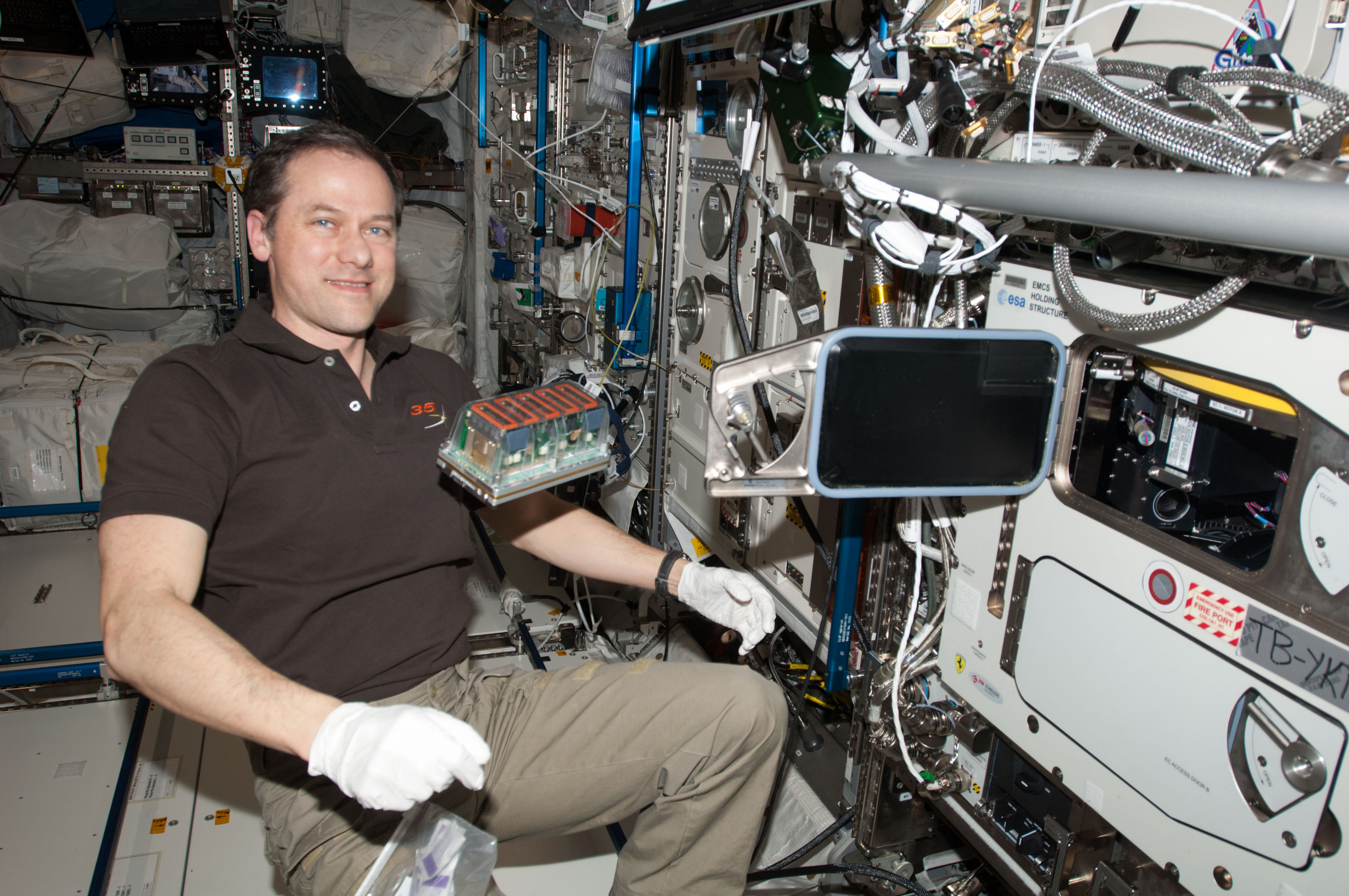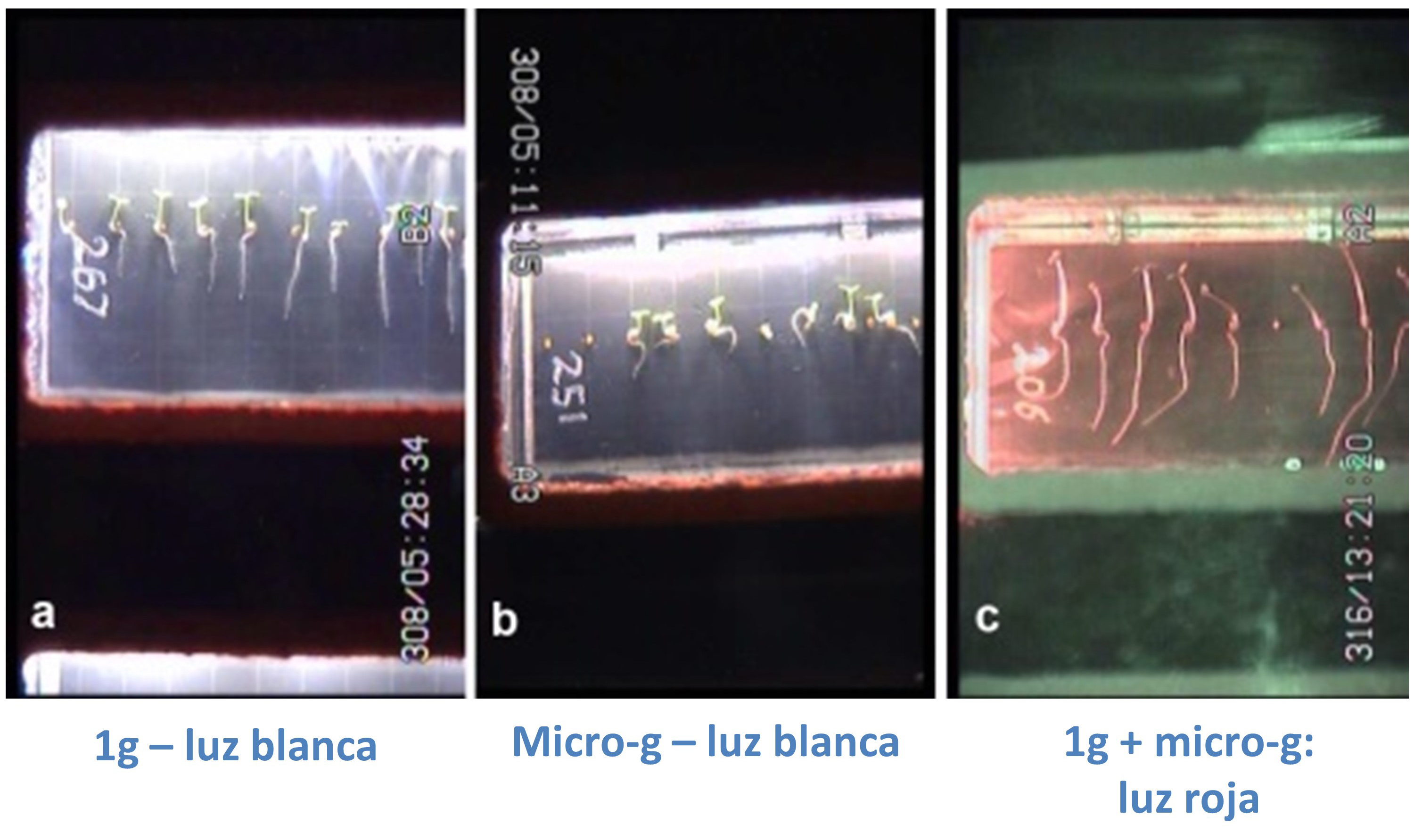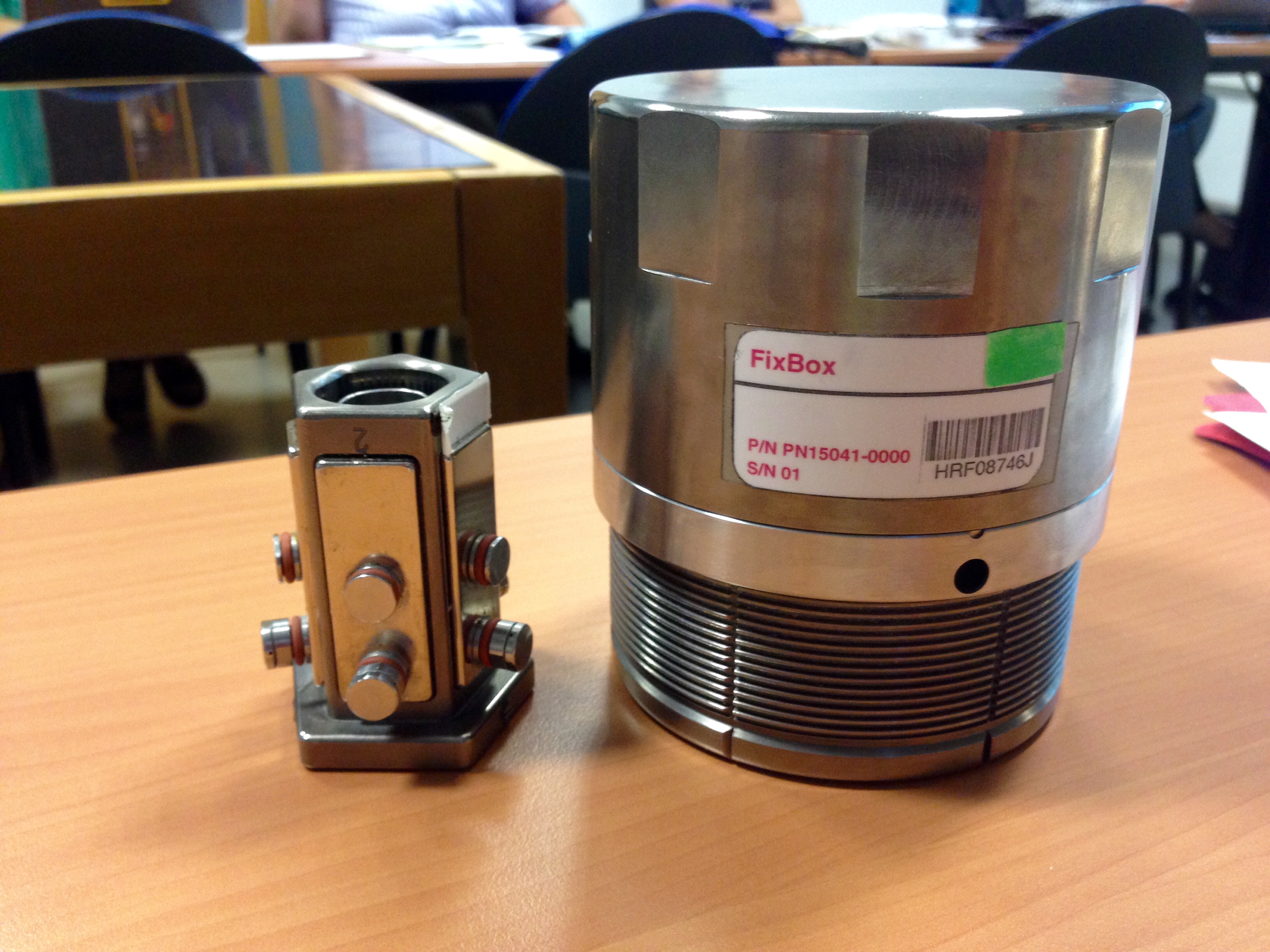Seedling Growth-3 is the third part of the Seedling Growth Experiment series, using the plant Arabidopsis thaliana to investigate the effects of gravity on the cellular signaling mechanisms of light sensing in plants (phototropism), and to investigate cell growth and proliferation responses to light stimulation under microgravity conditions. The investigation also seeks to determine:
- the red light effect on blue-light-based phototropism and its effects
- the alterations in red-light-based phototropism of plants defective in essential components of auxin transport or lacking essential factors of cell growth and proliferation,
- the effects of a red light photostimulation on cell growth and proliferation under conditions of gravitational stress.
This knowledge is valuable for developing an effective use of plants in life support systems in space, including on the Moon and Mars. It also has a strong relevance for improving crop species on earth to obtain increased production and sustainability.
Source: NASA
Description
The experiment will be conducted with different genotypes of the model plant Arabidopsis thaliana in experimental unique containers placed in the EMCS on the International Space Station. The experiment containers contain white, blue and red lights that can be controlled from ground to expose the plants to different kinds of light. By using the two centrifuges in the EMCS, it is possible to carry out the experiment in microgravity and fractional gravity along with the 1-g control within the same space environment. For Seedling Growth-3, the samples will be subjected to 1g, 0,3g and 0g. Following a six day time course in the EMCS, the samples will be either frozen or chemically fixed and returned to the investigators for analysis. Additionally, images will be taken throughout the whole experiment and downloaded real time
Technology from Spain
The European Space Agency (ESA) has selected NTE-SENER’s proposal for the design, development, manufacturing and verification activities for the procurement of the Fixation Box (FixBox) for a vegetal biology experiment in the International Space Station (ISS).
The equipment’s complexity lies in the integration of the five cassettes with the seeds within a very restricted space (compatible with different ISS freezers, as well as an automatic mechanism for the fixation injection).
Source: SENER
- Experiment name: Seedling Growth-3
- Facility: EMCS
- Test subject: Arabidopsis thaliana
- Experiment duration: 2 runs x 6 days
- Growth substrate: Filter paper
- Water source< Internal EUE water
- Principle Investigators: Francisco-Javier Medina, Centro de Investigaciones Bioligicas, Madrid, Spain
- Co-Investigator(s)/Collaborator(s): E. Camero-Diaz, France; Elodie Boucheron-Dubuisson, Ph.D., Université Pierre et Marie Curie, Paris, France; Julio Saez-Vasquez, CNRS-IRD-Université Perpignan via Domitia, Perpignan, France; Raúl Herranz, Ph.D., Centro de Investigaciones Bioligicas, Madrid, Spain
- Payload Developers: NASA Ames Research Center and NTE Sener
- Launch vehicle: SpaxeX-11
- Launch day: 1st June 2017
- ISS Expedition Duration: March 2017 – September 2017





